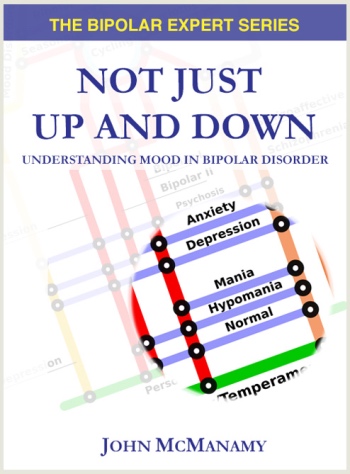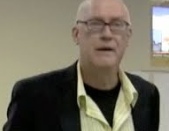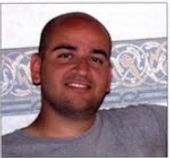Freud - The Wizard of Id
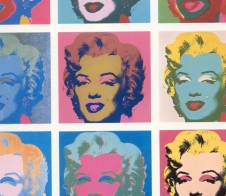 |
The cult of Freud practically wrecked psychiatry. A reappraisal may save it.
|

Famous psychiatrists. In October of 1900, an industrialist living in Vienna took his eighteen-year old daughter, "Dora," to see Sigmund Freud. Dora was acting peculiar and saying strange things. Could the good doctor restore her to reason? The case didn't seem particularly promising to Freud, just another garden variety hysterical woman, in his view, but his finances were none too secure and so he took her on.
A few days later, he wrote to a friend: "The case has smoothly opened to the existing collection of picklocks."
Freud had stumbled upon a strange new terra incognita he called the unconscious.
Under psychoanalysis, Dora told Freud of her family's closeness to that of Herr K, how her own father had been having an affair with Frau K and how Herr K was turning his attentions on her. Dora told the story of K's advances to her father, who rejected it as a sexual fantasy. Freud, however, accepted Dora's account, but wondered why his patient felt disgust rather than desire, and suddenly one of history's great Archimedes moments occurred - an aha! a Eureka!, an apple falling from the tree. Freud speculated that Dora UNCONSCIOUSLY desired Herr K. For good measure, he also claimed she lusted for Frau K.
My New Book!
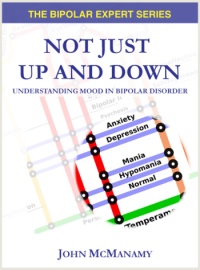
Purchase now.
Dora was not similarly impressed, She broke off her treatment, and we are left to contemplate whose unconscious desire was really at work here.
Nevertheless, even Freud's most strident detractors could not shoot down the idea of the unconscious mind and its influence over our conscious actions. In one fell swoop, Freud put an end to the notion that we were rational beings governed by rational thinking. But he also held out hope, that the worst inside us could be stripped of its strange dominion simply by bringing it out into the open.
Out of this mysterious mindscape of the unconscious would emerge a veritable glossary of Freudspeak:
- Id - our lower nature, as opposed to our super-egos or higher natures.
- Repression - our means of keeping our lower impulses locked away from our conscious awareness.
- Projection - an unconscious passing of our thoughts and feelings to another.
- Neurosis and psychosis - various mental states that result from the unconscious at work.
So far, so good. But then came all the hilariously stupid sex stuff - how boys unconsciously wanted to have sex with their mothers (Oedipus Complex), and how women deep inside envied men's anatomies (penis envy) - not to mention an equally powerful deathwish (thanatos) that engaged the id in an unconscious danse macabre.
Some of this crap derived from his observations with a very small number of angst-ridden middle-class women patients. All the rest came across as the product of a cocaine-addled brain (Freud championed cocaine in his early days and was a regular user for about two years). But to write off Freud as some kind of Viennese quack based on his penis envy nonsense and the rest would be like denouncing Aristotle as a second-rate philosopher because he was known to get a few things wrong.
What Freud succeeded in doing was bringing all our social taboos out into the open and making them appropriate topics for discussion, a cultural dam burst that would spill over into literature and the arts and across all disciplines. And by introducing us to the hidden world of the unconscious, Freud effectively showed us how we think. He demonstrated the huge impact our early childhoods can have on us as adults, and for good measure rescued the interpretation of dreams from the crystal ball category. Finally, his new technique of psychoanalysis promised to root out our hidden fears and desires and traumas and restore us to mental soundness.
His theories and ideas (much of it derivative of others and some outright plagiarized) would leave their imprint on every area of human activity - from parenting and education to social welfare to labor-management relations to marketing and advertising to the administration of criminal justice. He and his acolytes would literally create a new profession and spread the word across the planet. At his death at age 83 in 1939, Freud could be considered intellectually hot, and into the fifties and sixties and beyond no student could make it through college without being exposed to the Gospel According to Sigmund.
Make no mistake about it: We are talking about one of the two or three most influential figures of the twentieth century, if not in all history.
But Freud also left an extremely disturbing legacy. As his theories took root and were applied to practice, the biological basis of mental disorder was discounted, and the work of earlier clinicians forgotten and not built upon. Up until a very short time ago - thanks to Freudian psychology - schizophrenia was thought to stem from bad parenting, and those with bipolar disorder were written off as uncooperative behavior problems. Even depression was looked on as a neurosis.
The terrible result of all this was that for a good two or three decades following the Second World War, money and resources that could have been devoted to finding proper treatments for these disorders - not to mention directed into more practical therapies - were diverted into other projects. According to E Fuller Torrey, author of "Surviving Schizophrenia," writing two decades ago:
Talking to your therapist about your mother continues to be a national pastime, with or without federal assistance. And it continues to usurp an extraordinarily large share of professional resources that should be going to the seriously mentally ill.
But years later, Torrey's arguments shifted. The exorbitant cost of psychiatric meds, he noted - particularly second-generation antipsychotics - was bleeding public and private mental health budgets white and taking away from other vital services.
Now we live in an era where ten-minute meds checks pass for "treatment," with psychiatry a branch of the pharmaceutical and insurance industries rather than a specialty of medicine. Clearly, the pendulum has swung way too far the other way.
So now is a good time to reappraise the Wizard of Id. After all, one can no more fault Freud for the stupidities of his successors than one can blame Jesus Christ for all the holy wars that would later be waged in his name. Great minds like Freud open us to a realm of possibilities. But it is up to us to determine how to use these insights to our best advantage. Sadly, all too often, we find ourselves having to rescue the legacy of a true visionary from the clutches of those who carry on in his name.
We now know that although mental illness is a biological phenomenon, it occurs in an environmental context, with trauma and abuse linked to between 50 and 80 percent of people who are later diagnosed. Likewise, we are seeing the effects of vulnerability to stress and trauma in brain scan studies too numerous to mention.
There is something to talking to our therapists about our mothers, after all.
Biological psychiatry mistakenly thought it had replaced Freud. A new "science of the mind" may end up rehabilitating and reconciling him.
Published 2000, revised April 15, 2011
 |
More famous people articles. |

